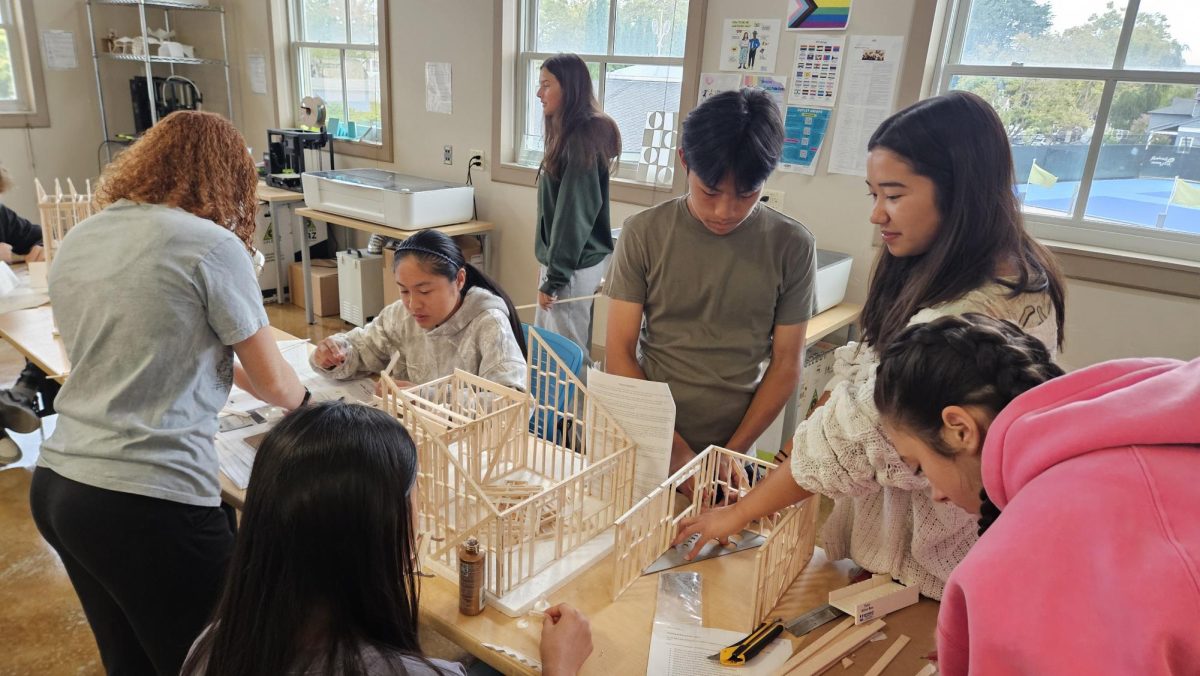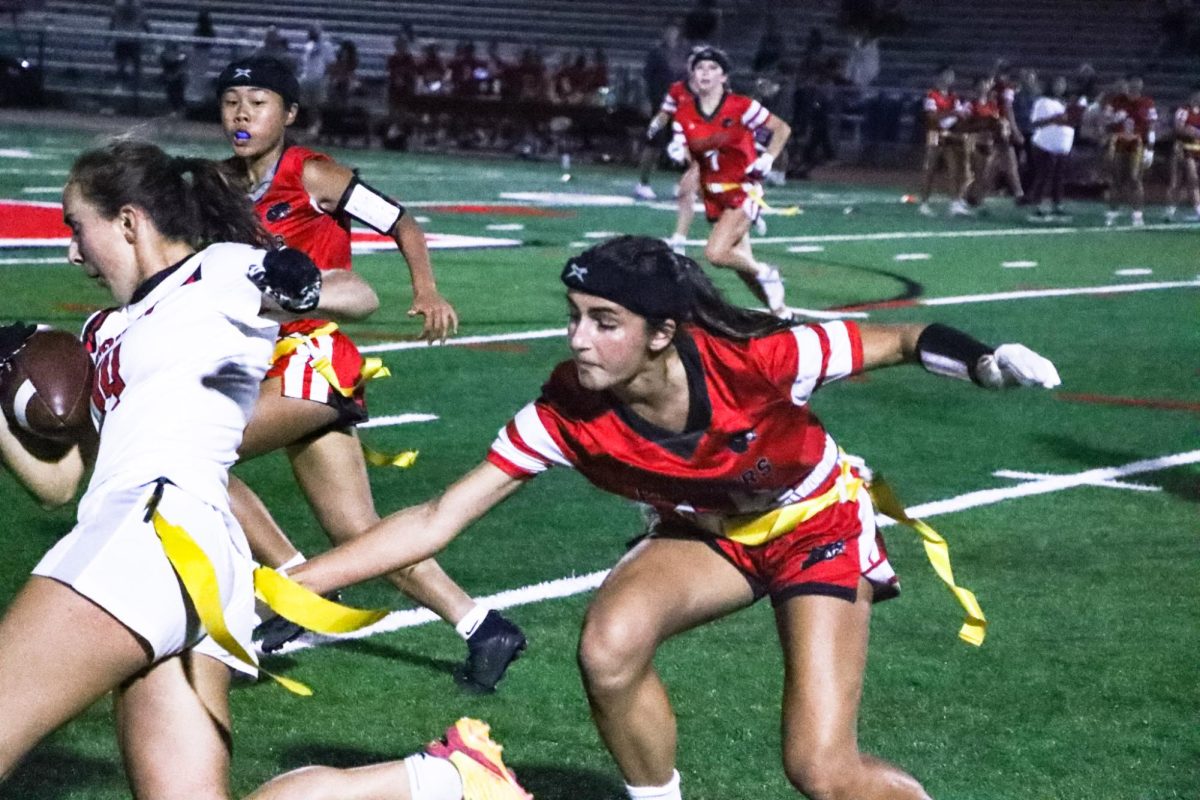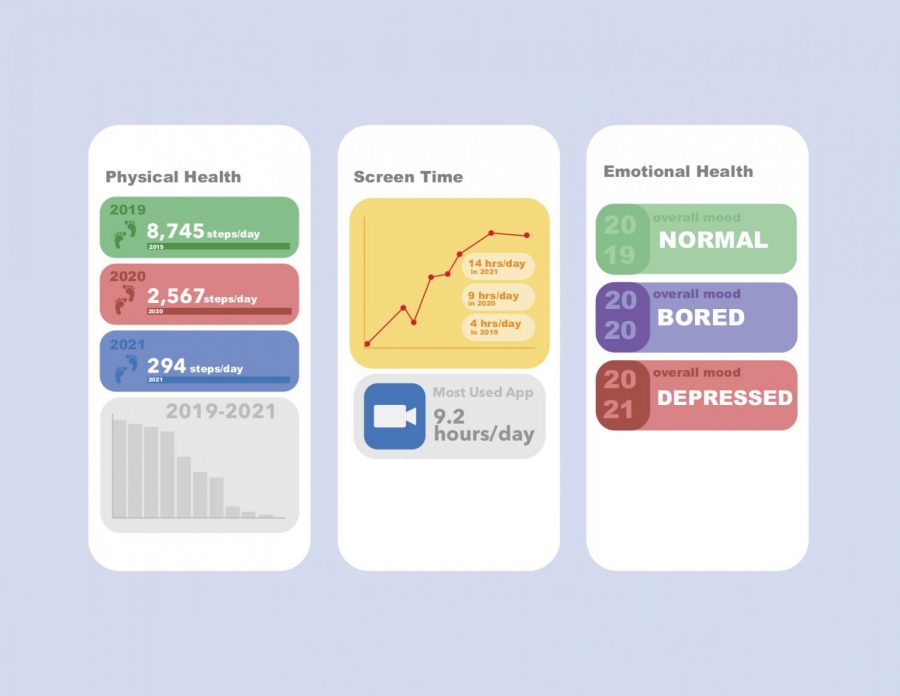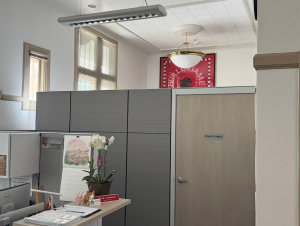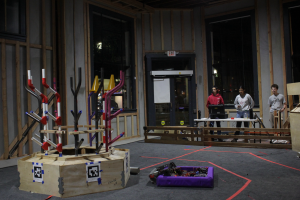Hardships of quarantine deteriorates student’s mental health
Many teens are struggling with mental health issues due to the social isolation and stress caused by quarantine.
March 8, 2021
Spending the whole day sitting in front of a computer screen, attending endless Zoom calls and turning in assignments by 11:59 p.m. has become a routine in the lives of many students. Before the pandemic, teens followed an organized schedule and were able to look forward to seeing friends at school and attending sports practices and other extracurricular activities after school. However, students now find themselves isolated in their homes, which mental health experts are observing lead to “feelings of isolation, depression, anxiety, and other emotional stresses” (CDC).
According to sophomore Ana Lunaparra, students used to socialize with peers during their classes and lunch on a daily basis. With social distancing, however, students are unable to interact with each other as often.
“My favorite part about going to school was being able to see my friends, but now I’m just stuck at home all day which can be very lonely,” Lunaparra said.
Burlingame’s Mental Health and Wellness counselor, Alexandra Roberts, believes that it is important to take into account what students are going through during these times and emphasized that the counselors and teachers are trying their best to provide the necessary support to all.
“Being in quarantine is very lonely and isolating; Students are stuck at home all day and aren’t able to socialize as much as they would at school,” Roberts said. “We are offering drop-ins, so there are certain periods throughout the day that the wellness counselors are available for check-in.”
The shift to virtual classes has also impacted students’ motivation to do schoolwork and actively pay attention. Being at home, it is easier for students to get distracted instead of listening to their teacher. The lack of attention leads to a lack of understanding of the material, leaving students discouraged and confused.
“Focusing during class is really hard since we are not in an actual classroom. It’s also very stressful having to complete a bunch of assignments that I don’t have the motivation to do,’” Lunaparra said.
In order to support students in caring for their mental health, Roberts provided students with tips on how to better manage the difficulties of quarantine.
“It is so important in general but especially right now, to take care of yourself. Make sure to use those 15 minute breaks. Get up and do something away from your computer screen,” Roberts said. “[The wellness counselors and I] also recommend socializing, trying to stay connected with others in a Covid-safe way. Whether that’s Facetiming a friend, or going out but staying six feet apart, with masks on.”
Despite the current situation, Roberts recommends students look at the bright side of the situation and reach out to counselors, friends or parents whenever they feel necessary. Speaking up during psychological distress is a great way to cope with the stress, anxiety and sadness.
“Don’t be afraid to reach out to one of us if you need help. We are here for you; you’re not a burden. We want to help you. This is a really difficult time for everyone so please come to us,” Roberts said.
CONFIDENTIAL SUPPORT
- 24/7 Crisis Text Line: Text “Start” to 741-741
- Starvista 24/7 Crisis Hotline: (650) 579-0350
- Online Crisis Chat Line: www.onyourmind.net
Request a drop-in appointment with a Wellness Counselor:
https://go.oncehub.com/BHSWellnessDropIn
BHS Wellness Counselors’ Social Media:
Instagram: BHS_Wellness
TikTok: BHS_ Wellness







